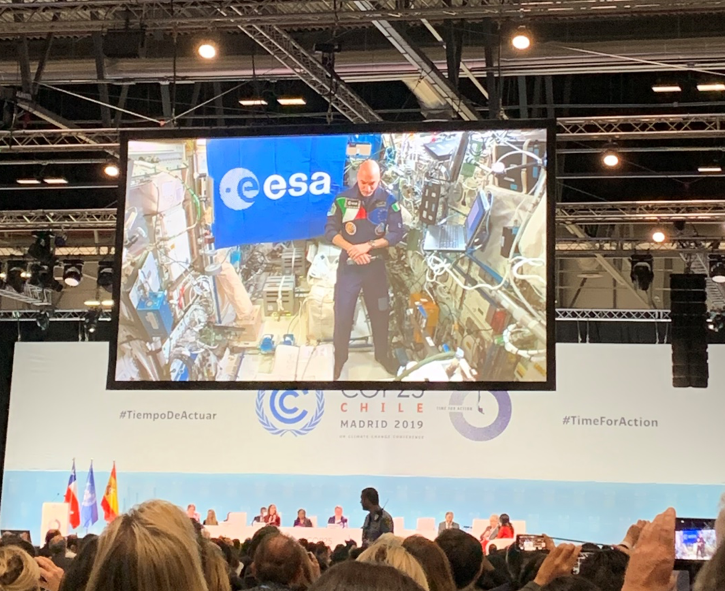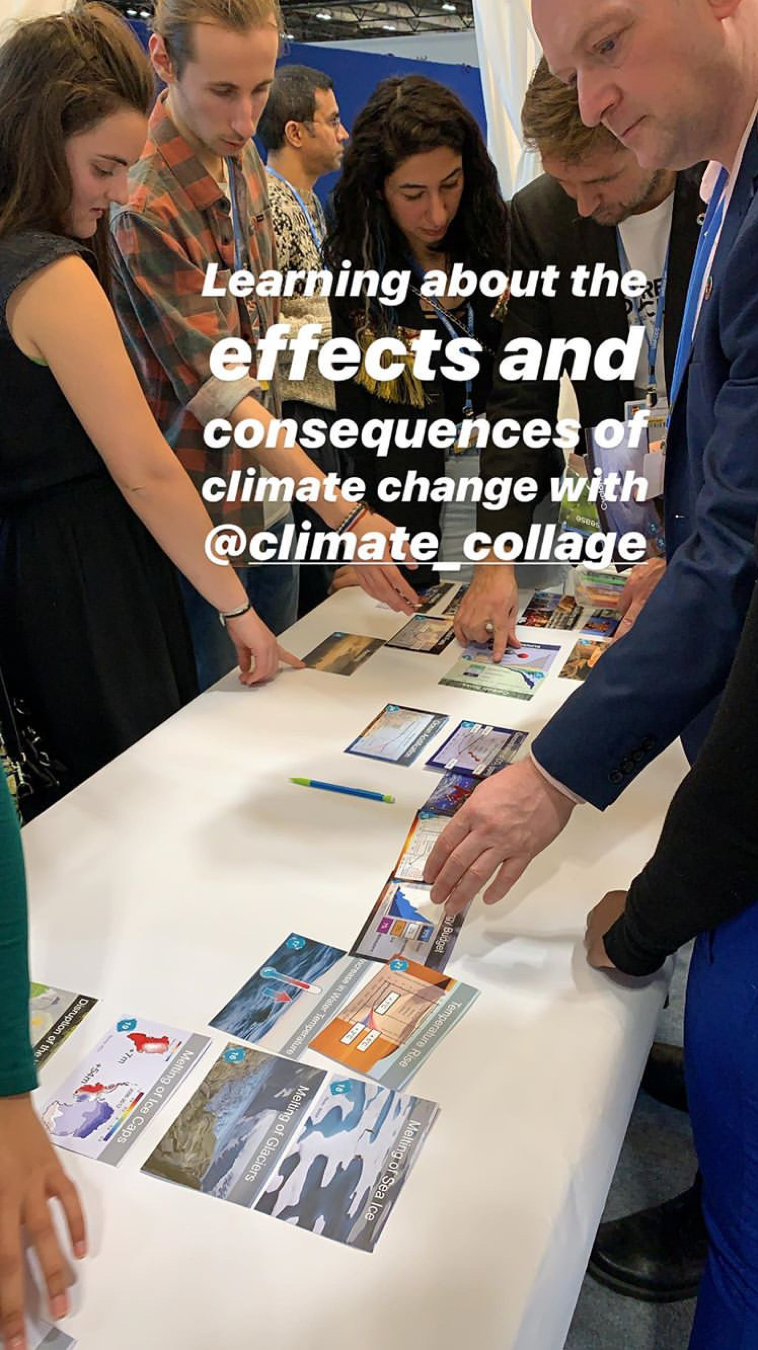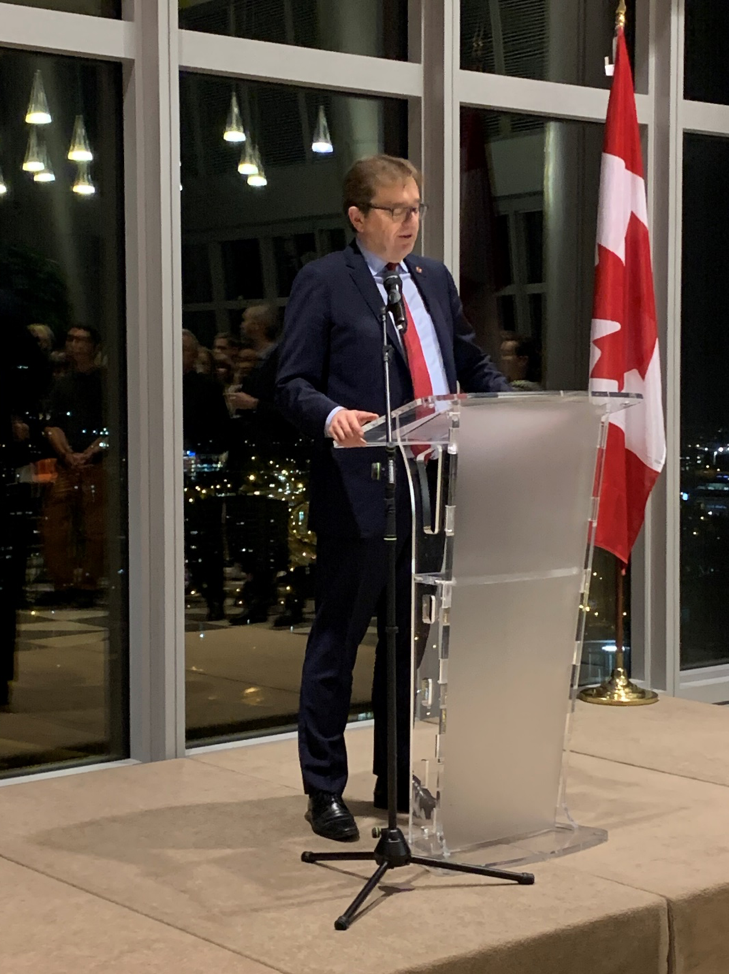Lessons learned from COP25
As my interests are related to partnerships and stakeholders’ participation, most of the events I have attended are aligned to these topics. In particular, I have been following the community engagement mechanisms that different countries and local governments have implemented in their sustainability and climate action plans. I was surprised by the amount of side events and country pavilions’ events regarding community engagement. It seems that authorities are understanding that without inclusive collaboration with communities there is no room for action.
One of the cases I have been following closely is Brazil. Originally, Brazil committed to host COP25, but last year before COP24 in Katowice, Poland, the Brazilian government announced that they will not host the 25thversion of the Conference of the Parties in 2019, due to constrains in their budget, but also because their current administration is skeptical to climate change. This announcement left people shocked because Brazil has been participating in the fight of climate change actively. Let’s not forget that the Brazilian amazon has more than 60% of the Amazon rainforest, which represents the largest and most diverse rainforest in the world. Unfortunately, this enormous piece of land is being threatened by deforestation caused by excessive exploitation of its resources regarding farming activities, mining, among others. In 2019, the region faced wildfires that affected 906,000 hectares.
Therefore, actions towards deforestation and reduction of GHG emissions have been the topic of the Brazilian’s side events. The first event I attended was an ICLEI – Local Governments for Sustainability’s side event where the Mayor of Recife, Gerardo Júlio, talked about towards their path to the declaration of climate emergency in the city of Recife. The Mayor stated that, despite that there have been cuts in the financial support from the national government, the city has committed to reduce significantly their carbon emissions. This is an example of resilience, and that actions need to be done now. Another side event that I attended was related to the partnerships that the state of Amazonas have been creating in order to tackle deforestation, and how they have involved their community in the decision-making processes. I was surprised by the awareness that their community has, and how they have developed empowered grassroots organizations that include women and young people. Both events gave me hope, because despite that their national government is constraining their budget to develop plans for reducing GHG emissions and fight against deforestation, local governments and communities are working together along with several partners to achieve their goals.

Another event that I attended was a special event with the UN Secretary-General António Guterres, the COP25 President Carolina Schmidt, and other world leaders. This meeting had a live connection to space with the Astronaut Luca Parmitano (International Space Station Commander), who is the youngest astronaut sent in a long-term mission. It was such a great opportunity to witness a connection with somebody who is watching the earth from the space. The UN Secretary-General asked several questions to the astronaut regarding his experience. One of the questions that Parmitanol was asked it was about the most beautiful and the most fragile thing on earth that he can perceived. I want to highlight that his answer regarding the most fragile thing on earth were us human beings. I believe that such a strong answer urge us to work even faster towards implementing stronger mitigation policies, and that world leaders need to commit strongly to the Paris Agreement. The slogan of COP25 is #TimeforAction, but as the COP25 President mention, the speed of action, unfortunately, is slower than expected.
It has been one week since COP25 was concluded, and I have to say that I have a mix of feelings regarding this experience. After COP I went back to my home country Chile, and when people asked me how did it go answer that it went well for me because it was a such a wonderful experience, but at the same time the negotiations did not go as expected so I was disappointed. People around the world already knew that the outcomes were not the expected, therefore there have been news, tweets, and comments regarding the negative role of Chile as the holder of COP25’s presidency.

Despite of these outcomes, I would like to highlight the great experiences that I had at COP25. As I mentioned earlier, I was surprised by the actions taken by local governments around climate emergency regardless that their national governments do not believe in climate change. I had the chance to assist to the Green Zone of COP25 which is open to the public, and I was amazed by the activities and the large number of young people that assisted. Young people have taken seriously that this is the #TimeForAction, and there is no way back. The feeling I had from that experience is that the Blue Zone was somewhat disconnected from the Green Zone, which shows that there is lack of connection between authorities and governments, and their communities. People at the Green Zone were actually talking about real life experiences, and how the consequences of climate change and inequalities have modified their way of living. While in the Blue Zone delegations, and side events were talking about how great their communities are doing, and the actions that are needed to undertake in the future.
While wandering in the Green Zone, one of the organizations that caught my attention the most was Climate Collage, which is a French organization that aims for educating as many people as possible about climate change. Climate collage is a game where people have to organize cards that contain information from IPCC reports regarding causes and consequences of climate change. I had the chance to play the game at one of their side events in the Blue Zone, and I was surprised about the things I did not know about climate change. As it is an education tool, and the organization’s purpose is to reach people all over the world, everyone who played the game can become a facilitator and play the game with their community. Since I participated of one of the games, I am planning to organize a workshop during winter term and play the game with our community at the University of Waterloo.

Another great moment at COP25 was the reception that the Canadian Minister of Environment Jonathan Wilkinson and the Canadian Ambassador to Spain Matthew Levin hosted. The reception started with a welcoming speech from the ambassador followed by a speech from the Minister Wilkinson that focused on the role of Canada in the negotiations. Indigenous peoples that were invited to the reception gave their speech as well, highlighting a lack of inclusiveness in the negotiations.
What I believe is that this lack of inclusiveness, and disconnection from communities, youth and marginalized people was a topic in COP25. Some critiques around this were the sayings of Jennifer Morgan, director of Greenpeace International, and Mohamed Adow, director of Power Shift Africa. Morgan stated that Chile’s focused was not in the people, instead the country focused on the polluters. Adow declared that the Chilean governments is failing in fighting climate change, as well it is failing to their own people. Let’s remember that since October 18, 2019, Chile has been facing protests and riots as a consequence of social injustice and high levels of inequalities. Ongoing protest and manifestations were the cause that COP25 was moved to Madrid, Spain.
As a Chilean, I believe that Chile missed a great opportunity to celebrate COP25 in its territory. As the government mentioned in their website, Chile is facing 7 out of 9 problems of climate change, especially around droughts. Therefore, it is urgent to educate our people regarding climate change, and to make strong regulations that are in favour of people instead of protecting emitters of GHG. As it was well said by Mohamed Adow, Chile is failing to their own people and it is true. The behave of the Chilean authorities at COP25 protecting corporations, was just a reflection of what the Chilean population are facing every single day, and that is one of the reasons why protests keep going on after two months. Chile did not realize that this was not a show off marketing conference, this was about making decisions about the world’s future.
2020 is the year that countries have to show their National Determined Contributions, and we hope that their contributions allow us to boost climate action at both local and global level, as well as to achieve climate neutrality by 2050. The upcoming years are crucial, and it is urgent to work collaboratively with several stakeholders, including countries that are already facing climate change consequences, as well as the big polluters like United States, Russia, India, China, and Brazil. Climate action is needed, and for us that fight climate change COP25 is an opportunity to keep fighting. I am eternally thankful for having the chance to attend COP25, there are tons of lessons learned that I am looking forward to sharing with my community, both in Chile and in Canada.

Valentina Castillo is a Master of Environmental Studies (MES) student in Sustainability Management. She attended COP25 United Nations Climate Change Conference in Madrid, Spain during fall 2019. This is her reflection from participating as a student delegate.